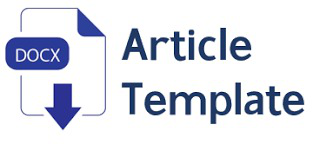Problematika Pemekaran Daerah Pasca Reformasi di Indonesia
DOI:
https://doi.org/10.14421/sh.v1i2.1891Abstract
One of logical consequence of political decentralization policy of regional autonomy is a phenomenon of regional expansion or establishment of new autonomous regions/new autonomous region (DOB). The Government specifically regulates theregional expansion through UU No. 22 Tahun 1999 which was subsequently revised by UU No. 32 Tahun 2004 on Regional Government. The Act provides opportunities in local formation of NKRI based on considerations of economic capacity, potential regional, social cultural, social political, population, area, and other considerations that allow the implementation of regional autonomy that is technically governed by PP No. 129 Tahun 2000 jo PP No. 78 Tahun 2007. Originally, regional expansion has a positive impact of democratization, the growth of new centers, the approach to the public service, ease of building and maintaining facilities and infrastructure, the growth of new jobs, and the motivation of the development of regional innovation and creativity. However, the implementation turned out to be a dominant political factor in the process of regional enlargement. So regional expansion policy in the era of reform have failed, being unable to answer the question of welfare and community
services. The cause of this failure is the existence of political interests from the local political elites and legislators. In ddition, the regional expansion also cause spatial conflicts. To overcome these problems, several steps need to be assertive, namely, First, the government should immediately setting up the law on grand design the arrangement of regions in Indonesia. Second, there must be strict regulations to regulate the proposed
expansion area. Third, the government should be able to ensure that every member of society, including in areas that are geographically hard to reach still able to get the
public services they need. Fourth, the government also has to ensure that the allocation of development funds (either through the state budget and regional budget) can be
transferred in a transparent and accountable to its lowest level in the area in a fair and proportional way
References
Asshiddiqie, Jimly, Pokok-pokok Hukum Tata Negara Indonesia Pasca
Reformasi, Jakarta: Penerbit BIP, 2007.
Cahyadi, Robi, “Pemekaran Daerah Dalam Prespektif Rakyat,” dalam
http://fisip-pemerintahan.unila.ac.id, akses 19 Maret 2011 pukul
14 WIB.
Daniel, Laurensius, “Problem Pemekaran Daerah dan Prospek Otonomi
Daerah”, dalam www.equator-news.com, akses 15 Januari 2011,
pukul 00.15 WIB.
Djokosutono, Hukum Tata Negara, kuliah himpunan Harun Al Rasyid,
Bogor: Ghalia Indonesia, 1982.
Effendi, Arif Rosman, “Pemekaran Wilayah Kabupaten/ Kota,” Paper
riset, DRSP bekerjasama dengan USAID, Jakarta, 2007.
Fahmi, Studi, Hukum Otonomi Daerah, Yogyakarta: Kreasi Total Media,
Fauzi, Gamawan, “Paradigma Kewenangan Daerah yang Efektif dan
Efisien”, dalam Majalah Prisma, Volume 29/No 3/Tahun 2010.
Gadjong, Agussalim Andi, Pemerintahan dalam Tinjauan Politik dan Hukum,
Bogor: Ghalia Indonesia, 2007.
Hidayat, Syarif, Refleksi Realitas Otonomi Daerah dan Tantangan Ke Depan,
Jakarta: Pustaka Quantum, 2000.
Isra, Saldi, “Quo Vadis Pemekaran Daerah,” Makalah Seminar Pusat Studi
Kontitusi (Pusako) Universitas Andalas, Padang, 4 April 2009.
Jeddawi, Murtir, Pro-Kontra Pemekaran Wilayah; Analisis Emperis,
Yogyakarta: Total Media, 2009.








